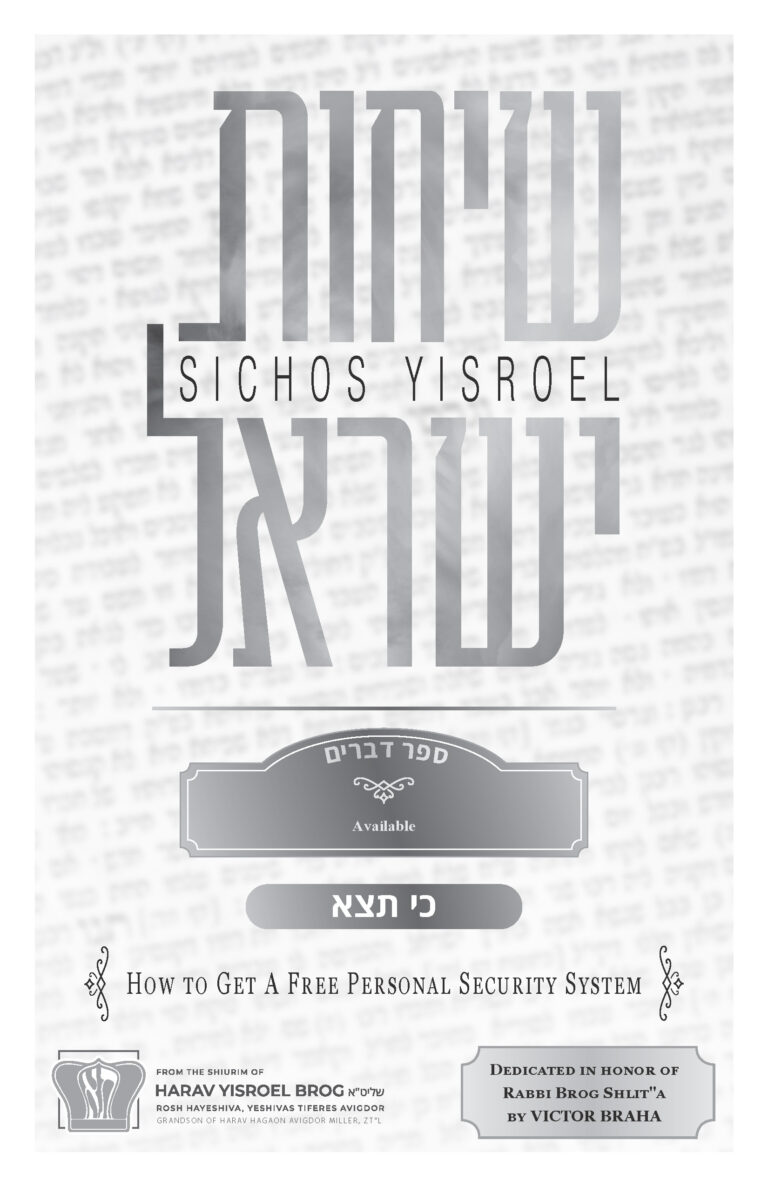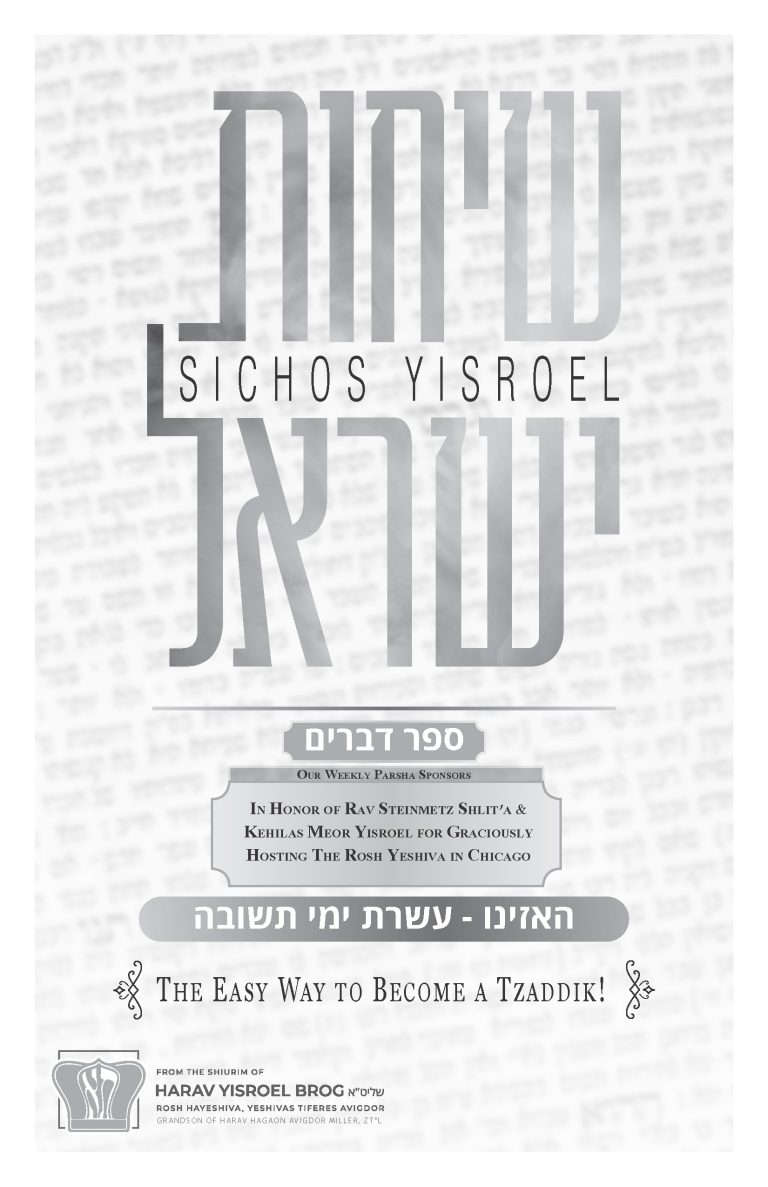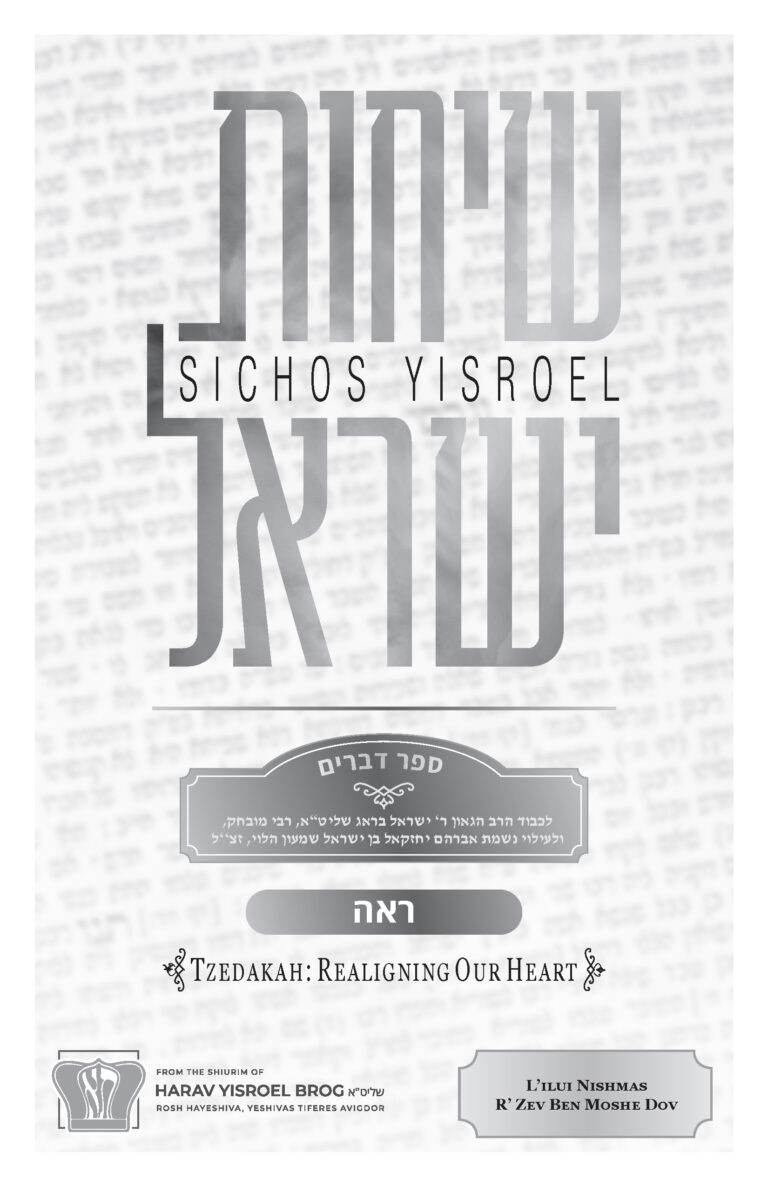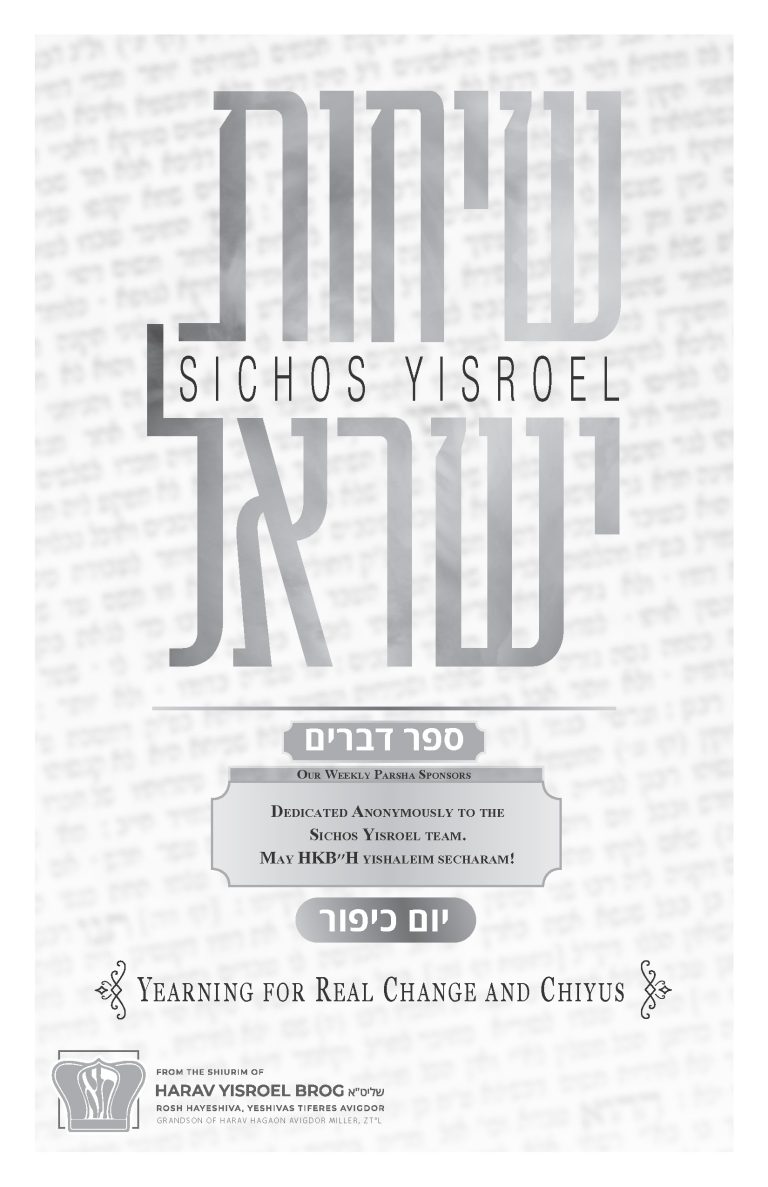Terumah 5782 – Building a Mishkan in our Homes
I
A TECHNICAL MITZVAH WITH TREMENDOUS REWARD
In Honor of Our Parents
ראובן בן רוזית
רחל בת בילא
On their 50th Anniversary
The Kassin Family

I
A TECHNICAL MITZVAH WITH TREMENDOUS REWARD
In Honor of Our Parents
ראובן בן רוזית
רחל בת בילא
On their 50th Anniversary
The Kassin Family

Sponsored Anonymously l’zchus Refuah Shleimah. Shiur presented in 5778.

Rav Chatzkel Levenstein, the mashgiach of Mir Yeshiva, once came into the beis medrash of Mir and went over to two bochurim who were learning and asked them what day in Elul it was. They didn’t know right away, so they started to make a cheshbon, trying to remember when Rosh Chodesh Elul was. One of them turned to the other and asked, “Nu, what day of Elul is it?” His chavrusa said, “It’s either the 9th or 10th of Elul.” When Rav Chatzkel heard this, he gave a shrei and said, “Bochurim! You don’t know what day it is in Elul?!

We are in the Aseres Yemei Teshuvah, and most people are challenged by the yetzer hara about what teshuvah is, and how it works. You realize that the greatest challenge to the yetzer hara is teshuvah. To the yetzer hara, the most ‘feared’ tool that Hashem gave us is teshuvah.

In this week’s parshah, we encounter the mitzvah of tzedakah. Tzedakah is something that everybody is familiar with. In all the shuls, people are collecting tzedakah. It is collected everywhere; on the streets, in newspapers, by phone, and through many other mediums and venues.

Parshas Bechukosai falls out almost every year right before Shavuos, or close to Shavuos. The subject of Parshas Bechukosai, as many people will tell you, is klalos and brachos, or tochachah. But the emes is that tochachah is only the end result. Many of us deal with symptoms but we don’t think about the reason for the symptoms. You always have to search for the reason for the symptoms.

The time period of the year that we now find ourselves is the most unique period of the entire year. There are no other days remotely like this. We’ll start with some words from the Rambam (Hilchos Teshuva 2:6) who writes the following: Even though teshuvah and davening are always yafeh (nice)…Now, let us pause for a moment and study those words. The Rambam says that teshuvah and davening, both teshuvah and crying out to Hashem, are yafeh all year long. What does that mean that it’s yafeh? What does that mean, it’s nice?